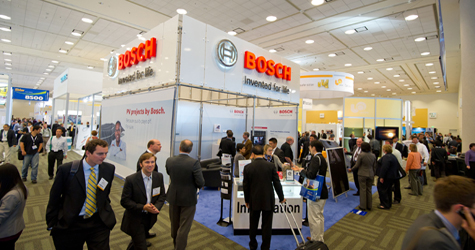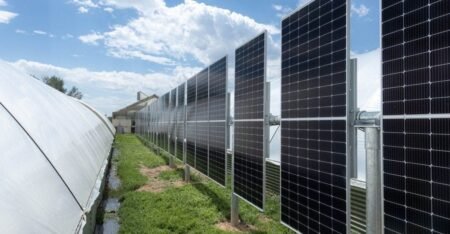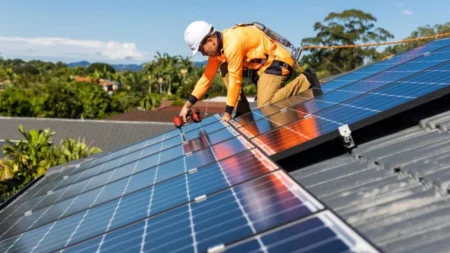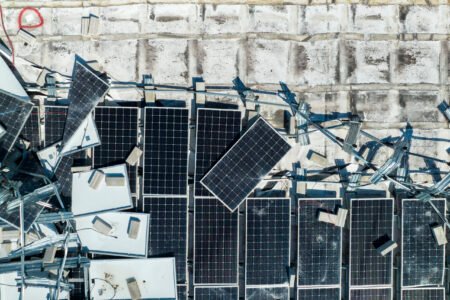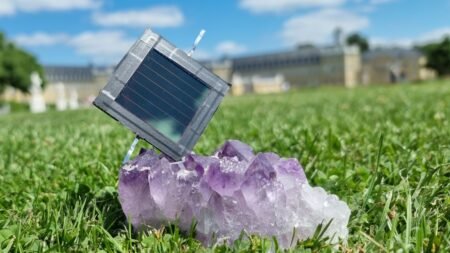2010 to see continued implementation of restructuring program and strategic transformation drive
Bitterfeld-Wolfen, 24. March 2010 – Q-Cells SE is to add crystalline modules and medium-sized solar energy systems to its product portfolio and adapt market access in order to advance the company’s transformation from a solar cell manufacturer to a provider of photovoltaic solutions. The objective of this broadened business model is to cover the more profitable areas of the value chain and improve the risk position. In parallel to the strategic transformation, the company will continue to advance its current restructuring programme in order to lay the foundations of future competitiveness. In 2010, the company expects a considerable increase in sales to between €1.0 billion and €1.2 billion as well as a significant improvement in the operating income.
Product portfolio for international markets
Q-Cells had taken initial steps to reposition the business back in 2008 with the move towards the production of thin-film modules as well as the installation of large ground-mounted systems. In future, the product portfolio will also include medium-scale projects and crystalline modules. In order to manufacture such modules, Q-Cells has agreed a partnership with Flextronics: Flextronics is constructing a production line in Malaysia on the basis of Q-Cells’ technical specifications and high-level quality requirements for modules with a capacity of 200 MWp, to be equipped with solar cells produced by Q-Cells. The first module was produced in mid-March this year.
At the beginning of April, Q-Cells is to start marketing the modules to wholesalers and large installation service providers. The range initially includes thin-film modules from Solibro branded ‘Q Smart” and crystalline modules for ground-mounted systems under the ‘Q Base” brand, which were previously manufactured only for the in-house project business of the subsidiary, Q-Cells International GmbH (QCI) with cooperation partners. All in all, Q-Cells’ product range will continuously be expanded over the course of the year. In the future, it will feature an innovative portfolio consisting of solar cells, crystalline and thin-film modules as well as photovoltaic systems for large-scale ground and roof-mounted systems. Sales activities were reorganised for this purpose over recent months. In order to meet the requirements of international customers more efficiently, offices were also established in the core regions of France, Italy and North America, while others are planned. As a result, the product portfolio, sales and customer support are all customised to the core technologies of Q-Cells.
The systems business is also to be broadened out. In addition to the large ground-mounted systems in which QCI has successfully specialised in the past two years, more medium-sized projects related to between 500 kilowatts and 5 MWp are also to be installed in future, i.e. solar energy systems for commercial and industrial customers. The knowledge obtained from large-scale projects can be used to manufacture smaller modules, which also entail a lower level of capital investment.
‘In the next few years, the market for photovoltaics will experience not only strong growth but also overcapacities and margin pressure. We can be very successful in such a market, given our strong brand and the high quality of our products. However, in order to achieve this, Q-Cells must have more flexible and cost-efficient manufacturing capacity at its disposal while focusing on the expansion of the product portfolio and market access. The partnership with Flextronics is a first important milestone. However, we need to continue to build on that if we are to keep up with the strong international competition”, comments Nedim Cen, CEO and CFO of Q-Cells SE.
Advancing restructuring measures
In addition to Q-Cells’ strategic transformation, the restructuring of the company, which is already underway, will be further advanced in 2010. After the adjustment of production capacities in 2009 and the related redundancies, the main objectives in 2010 will include the streamlining of the technology portfolio, optimising cash management and working capital as well as adapting internal structures. ‘Following dynamic growth in recent years, the entire solar industry finds itself in the midst of extensive transformation. New business models require different internal structures. This also applies to Q-Cells. The review of internal organisation and processes is a key task for 2010,” according to Nedim Cen.
At the end of the 2009 financial year, extensive adjustments were also made to the investment portfolio. The book values of three investments were written down to zero in 2009. In addition to Solaria Corp., these were Sovello AG (write-down in Q4: €88 million) and Sunfilm AG (write-down: €150 million). Both Sunfilm and Flexcell are currently negotiating alternative financing structures with their principal banks. At the same time Calyxo is searching for new financing partners. Due to existing contractual obligations in relation to Sunfilm, Q-Cells posted a net outflow of funds of approx. €42 million in the first quarter of 2010. In the case of Sovello, the shareholders have concluded an agreement with the financial investor Ventizz Capital related to the sale of 100% of the shares. This is expected to lead to a change of ownership in the coming weeks. With the adjustments, Q-Cells is taking a major step towards eliminating or minimising accounting risks in future.
Net income for 2009
Earnings before interest and taxes (EBIT) at Q-Cells SE for 2009 amounted to €-486 million. Book losses and write-downs on portfolio companies as well as discontinued operations accounted for close to an additional €1 billion, leading to a full year loss of €1,356 million.
Production of crystalline solar cells fell to 537 MWp overall in 2009 (previous year: 570 MWp). Including the thin-film modules of subsidiary Solibro, annual production of 551 MWp was attained. In 2009, sales of €802 million were generated (previous year: €1,251 million).
At the end of the year, cash and cash equivalents totalled €412 million, well above the forecast of €250 million to €300 million. This higher cash holdings amount is partly attributable to postponements in investments to 2010. With these cash and cash equivalents, the company is sufficiently financed for the current year.
Outlook for 2010
In addition to the change at the helm of the company, which took place when Anton Milner stood down on 11 March to be replaced by Nedim Cen, the former CFO, there was also a change in the Supervisory Board. Richard Kauffman resigned his post in February 2010 and was succeeded by Helmut Gierse, who has many years of experience in industrial production and automation.
Particularly in the first six months of 2010, considerable growth of the European market is expected. Q-Cells is set to benefit from this. Available investment in 2010 amounts to €150 million to €200 million. This will be allocated to the further expansion of cell production in Malaysia (planned capacity of 600 MWp by the end of 2010), thin-film module production at Solibro and targeted research and development for cells, modules and the development of systems expertise. Crystalline modules are expected to generate sales of 100 to 150 MWp in 2010. Sales in the newly installed photovoltaic systems related to QCIs project business are set to reach volumes between 150 MWp and 200 MWp.
In 2010, the company expects a considerable increase in sales to between €1.0 billion and €1.2 billion as well as a significant improvement in the operating income.
| ´09 overall | ´08 overall | |
| Production | 551 MWp | 574 MWp |
| Sales revenues | €802 million | €1,251 million |
| EBIT | €-486 million | €205 million |
| Net income | €1,356 million | €191 million |
Source: Q-Cells SE






